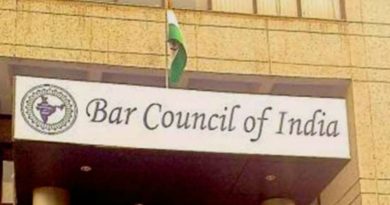Patna High Court Links State Alcohol Ban to Surge in Illegal Liquor Trade, Citing Collusion Among Officials for Profit.
(Judicial Quest News Network)
In a landmark judgment, the Patna High Court has quashed a penalty imposed on a police inspector for alleged negligence in enforcing Bihar’s controversial Prohibition and Excise Law. The court’s ruling shines a critical spotlight on the unintended consequences of the state’s alcohol ban, which it found has given rise to widespread illegal liquor trade and collusion between law enforcement agencies and smugglers, undermining the very public health objectives behind the prohibition.
The case revolves around an inspector who was penalized after Rs 4 lakh worth of illicit foreign liquor was discovered in a godown under his jurisdiction. The excise department had conducted a raid near the police station where the inspector was posted, leading to the recovery of the contraband. Although the inspector had initiated an FIR against the culprits, the disciplinary action was based on allegations that he had been negligent in preventing the illegal trade, despite being in close proximity to the site of the raid.
In his October 29 order, Justice Purnendu Singh noted that Bihar’s Prohibition and Excise Act, enacted with the noble objective of improving public health, has ironically exacerbated the very issues it sought to address. The court pointed out that rather than curbing illegal liquor consumption, the prohibition has led to a flourishing underground market, with police, excise, transport, and tax department officials turning a blind eye to the black market—profiting from the illicit trade.
Justice Singh expressed grave concern over the enforcement of the prohibition law, stating that the police and excise officials are often complicit with smugglers, with some officers actively engaging in the illicit liquor trade. The court highlighted that while many poor, daily-wage earners are criminalized for consuming or selling liquor, the real masterminds—smugglers and liquor syndicates—often evade justice due to lax enforcement.
The court further emphasized that in the present case, the investigating officer had failed to provide adequate legal documentation or evidence to support the allegations against the petitioner. Justice Singh noted that this failure to follow proper procedures and collect evidence left the door open for the illicit liquor mafia to thrive, while targeting the inspector as a scapegoat.
The inspector had been suspended on February 1, 2021, after a charge memo was issued against him, alleging negligence in implementing the prohibition law. The charge was based on a directive from the Director General of Police (DGP) of Bihar, issued in November 2020, which mandated severe action against officers whose jurisdictions were implicated in illicit liquor recovery. Despite his defense and a detailed show-cause reply, the inspector faced severe disciplinary action, including the reduction of his pay scale for five years.
However, the High Court observed that the disciplinary proceedings were flawed from the outset, noting that the DGP’s directive, issued before the investigation, had already prejudiced the case against the inspector. The court found that the penalty was imposed without a fair hearing, violating the principles of natural justice. Specifically, the court criticized the reliance on a “post-decisional hearing” rather than a fair, pre-decisional inquiry.
Justice Singh underscored that decisions taken with a predetermined mindset, as in this case, are inherently biased and cannot be considered fair. The court also pointed to the absence of proper investigation, as witness statements were not recorded in the manner prescribed by law. Based on these irregularities, the court ruled that the penalty imposed on the inspector was unjust and ordered it to be quashed.
The ruling also raised broader concerns about the effectiveness of Bihar’s Prohibition and Excise Act, which has, according to the court, inadvertently fostered an environment where illegal liquor trade thrives. The court criticized the state’s approach, noting that while the law was intended to improve public health, it has instead led to corruption and inefficiency within law enforcement agencies.
In light of these findings, the High Court directed that, if the authorities wish to proceed with any disciplinary action against the inspector, it must be done in accordance with the principles of natural justice, ensuring a fair and impartial process. The court concluded by reaffirming the importance of fair play and due process in disciplinary matters, stating that post-decisional hearings, when preceded by biased decisions, fail to meet constitutional standards.
The judgment serves as a significant rebuke to the Bihar government’s prohibition policy, highlighting the urgent need for reforms to curb corruption, ensure accountability, and address the unintended consequences of the state’s alcohol ban.




